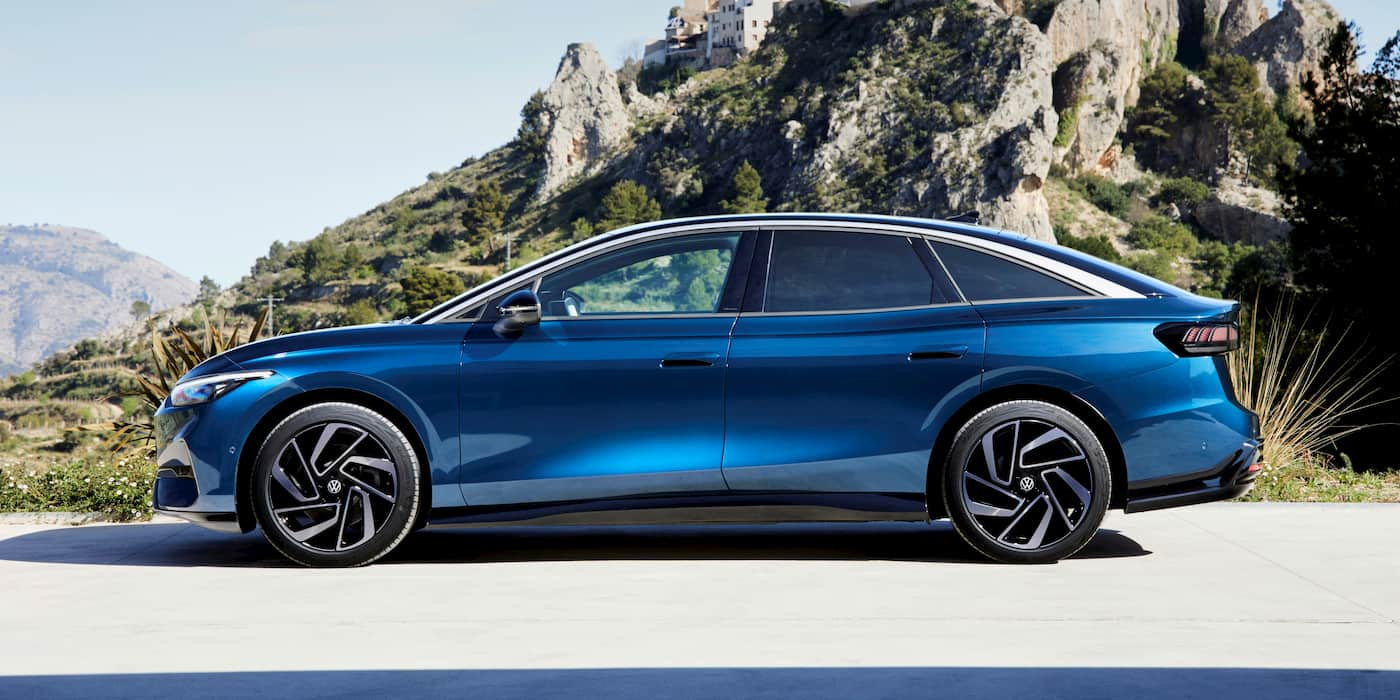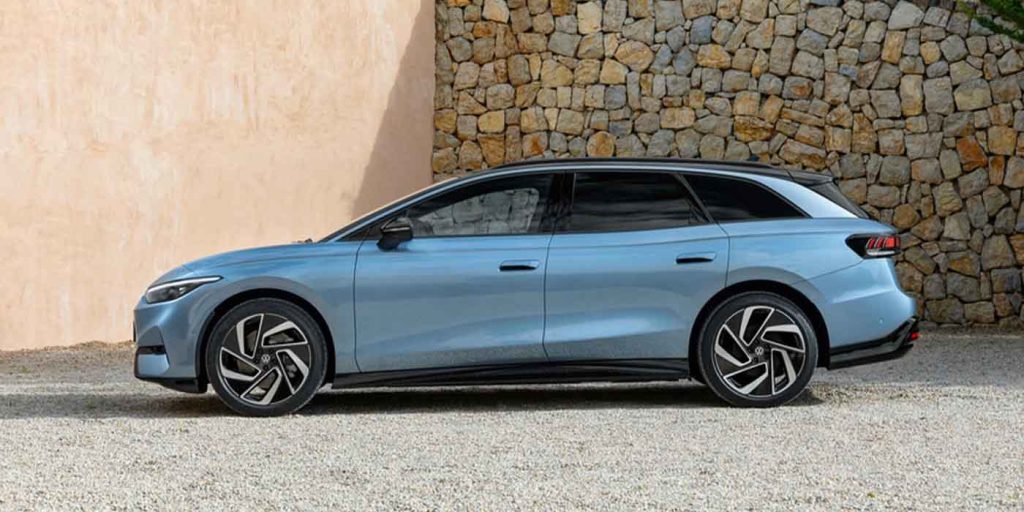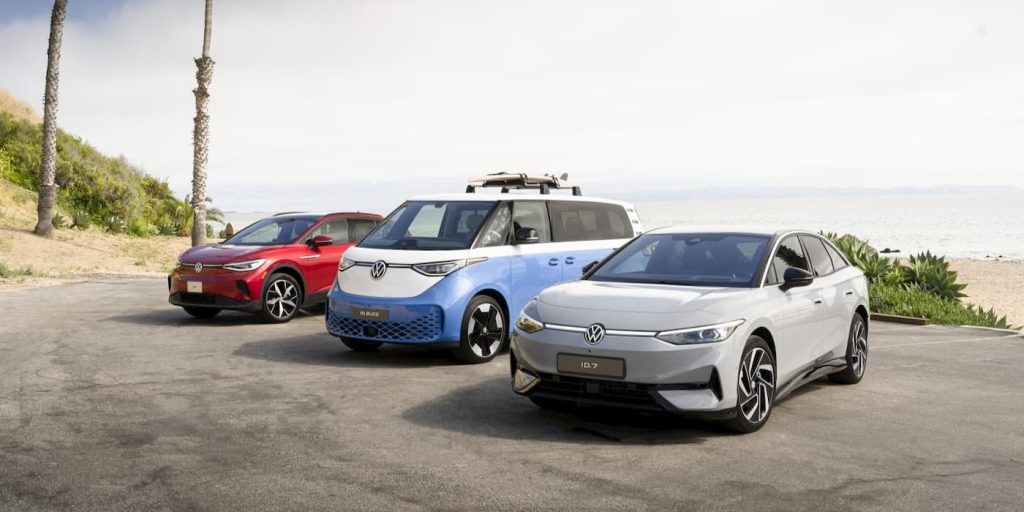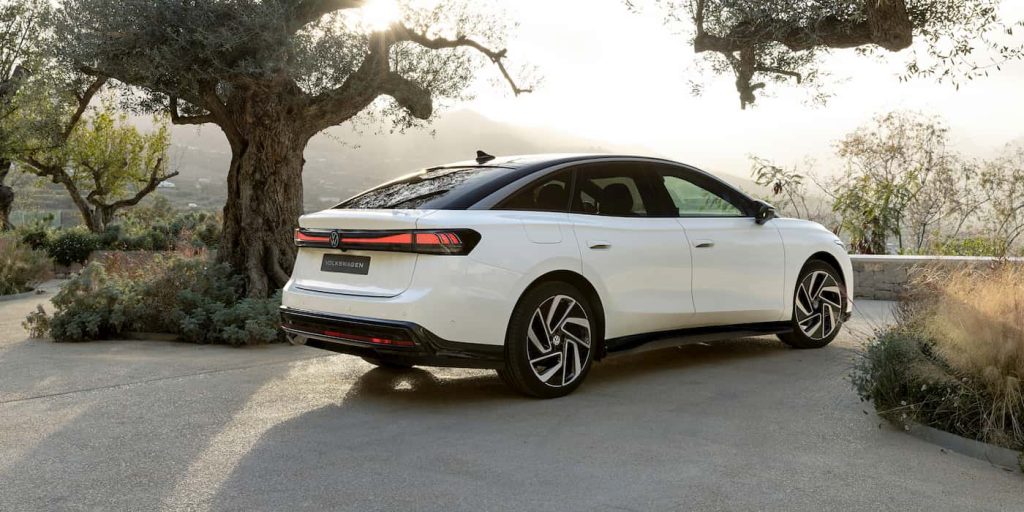
For those of you waiting to get your hands on Volkswagen’s new all-electric ID.7 sedan, you will have to wait (at least) a little longer. VW is delaying the ID.7 launch in the US as dealers express caution.
VW delays US-bound ID.7 as dealer concerns arise
Volkswagen opened orders for its new flagship ID.7 electric sedan last August in Europe, with prices starting around $62,000 (€56,995).
Although the new EV was scheduled to launch in the US and Canada in the next few months, VW pushed back the release indefinitely last week. VW has yet to set a date for its rollout, but its dealers in the US seem okay with it.
John Luciano, a VW Nation Dealer Advisory Council member and owner of Street Volkswagen in Texas, said the ID.7 was a key part of the discussion at its recent meeting.
“We brought up a little bit of caution behind it,” Luciano said, according to Automotive News. Meanwhile, Luciano explained that most VW dealers support the ID.7 delay.
“Are we sure this is a good idea?” He added, “We didn’t know an exact pricing, but [it’s] definitely a $50,000 to $60,000 car, without incentives. Is there any chance of it being competitive? And we felt like [it’s] not.”

Still pretty much a sedan and likely an expensive one
Although VW dealers expected the new EV to be similar to the ID Space Vizzion concept, shown in 2018, the ID.7 is “still pretty much a sedan,” according to Luciano.
At 195.3″ long, 73.3″ wide, and 60.5″ tall, the ID.7 is similar in size to Volkswagen’s discontinued Passat (194″ long x 73″ wide x 59″ tall). Meanwhile, the ID.7 Tourer, recently launched in Europe, is closer to the concept dealers were looking for.

The ID.7s design gives the electric sedan a bigger back seat with more head and shoulder room, but the hatchback opens it up further.
Other VW dealers have expressed similar concerns about the ID.7 in the US. “I just don’t think an expensive electric sedan is in the cards for most Americans right now,” said Anthony Scala, who co-owns three VW dealerships (City Auto Group) in Chicago.
Unlike the new ID Buzz EV minivan, managers are not seeing strong demand for the ID.7. Volkswagen’s ID Buzz is set to hit the US market by the end of the year.

Scala, like Luciano, liked the ID.7 but thought the price tag, starting at around $60,000, was too high. “North of $50,000 for a sedan that doesn’t have the star logo, the ring logo or the BMW logo,” he added, “It’s a non-starter.”
Another major hurdle for VW is that the ID.7 is built in Germany, meaning it does not qualify for the $7,500 EV tax credit.

Perhaps, more importantly, is the timing. If VW launched the ID.7 as planned, Luciano said big incentives would be needed to move inventory.
Despite wanting more models, “We need models that will actually get out into the market and work,” Luciano explained. “But that wasn’t going to work with no incentives.”
Electrek’s Take
Top comment by FC
If they were going to offer it in the US with the larger battery pack and had priced it similarly to the Ioniq 6, it could’ve sold just fine. If it was going to be priced at $55,000+ for the RWD model it would have never sold, especially since they were only offering the 82kWh battery option. Ioniq 6 is about to get the newer 84kWh battery which might boost the RWD model’s range over 400 miles. The 82kWh ID.7 would likely just barely hit 300 miles on the EPA test in RWD form. I wish we had more options but the ID.7 always seemed like another half baked offering for the US market.
Volkswagen delaying the ID.7 could work out in its favor. However, that’s only if the automaker can adjust prices or features to attract buyers.
Otherwise, VW could risk falling further behind with an outdated, more expensive model. With most automakers revealing plans to launch low-cost EVs in the US, the ID. 7’s expensive starting price could hinder sales.
Sedans are not selling in the US like other global auto markets, as SUVs and trucks continue gaining market share.
What do you guys think about Volkswagen delaying the US-bound ID.7? Are VW dealers right? Is it the right move? Let us know what you think in the comments.
FTC: We use income earning auto affiliate links. More.




Comments